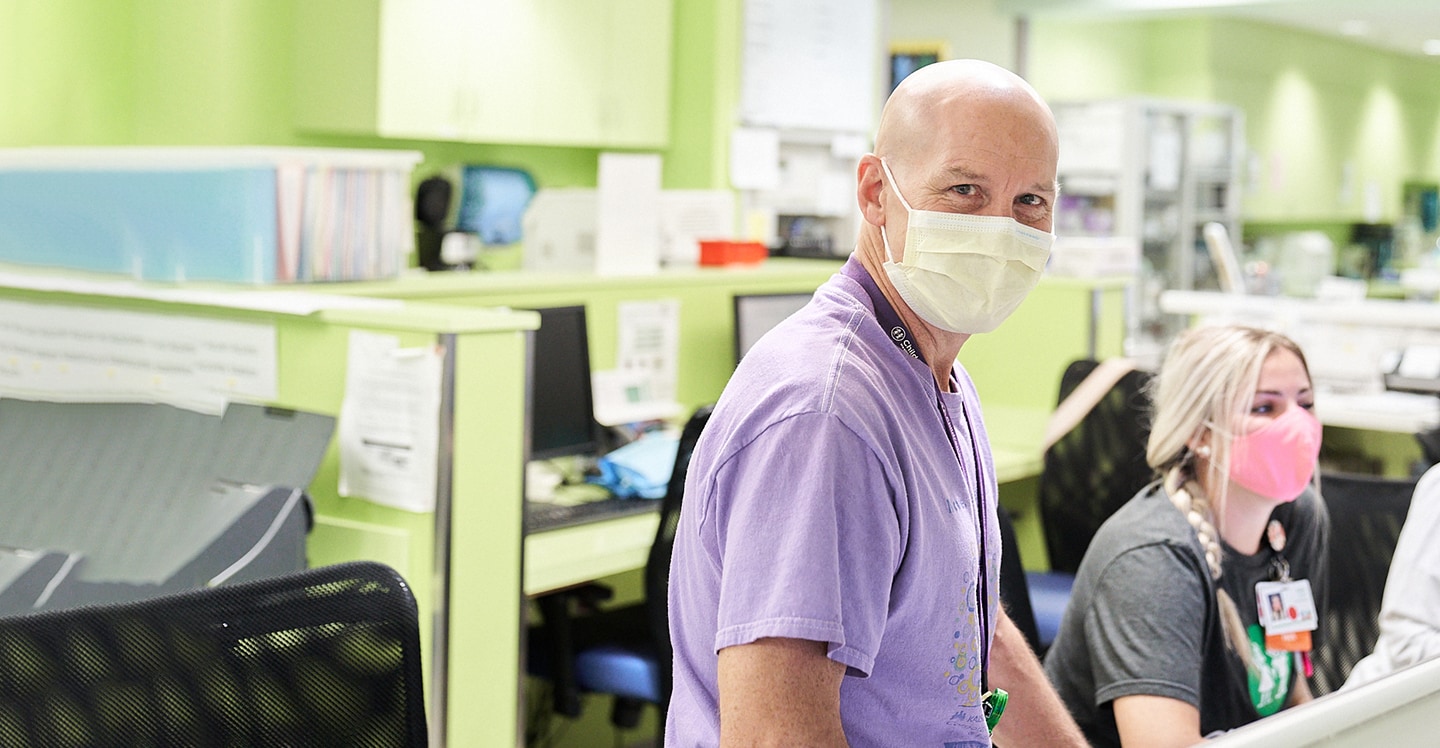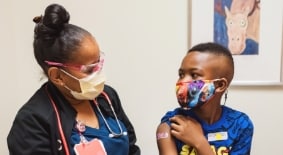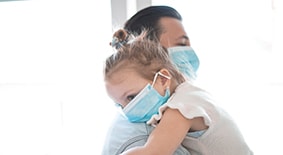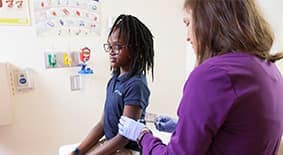COVID-19 is caused by a novel coronavirus (SARS-CoV-2) that emerged in 2019 and quickly spread worldwide.
Coronaviruses are a family of viruses that commonly infect animals and humans. They usually attack the upper respiratory tract—nose, sinuses and throat. The coronaviruses get their name from the crown-like spikes on their surface, visible under a microscope (“corona” means crown in Latin). Some types of coronaviruses cause mild, cold-like symptoms, while some infections from coronaviruses like SARS or MERS can be associated with more severe symptoms.
Symptoms of COVID-19 range from very mild to more severe and in some situations, fatal. COVID in most healthy children causes mild symptoms and does not require hospital care.
Symptoms of COVID-19 may include:
- Fever
- Cough
- Sore throat
- Congestion or runny nose
- Shortness of breath or difficulty breathing
- New loss of taste or smell
- Refusal to drink
- Fatigue
- Muscle or body aches
- Headache
Symptoms may appear two to 14 days after infection. In children, the most common symptoms are fever, congestion and cough.
When should my child see a doctor for COVID-19 symptoms?
Most children with COVID have mild symptoms and can safely recover at home without seeking medical care. If your child is refusing to eat or drink, has a fever that is not responding to medication, or not acting as they usually do, discuss your child’s symptoms with their pediatrician.
If your child is having difficulty breathing, call 911 or go to the nearest emergency department.
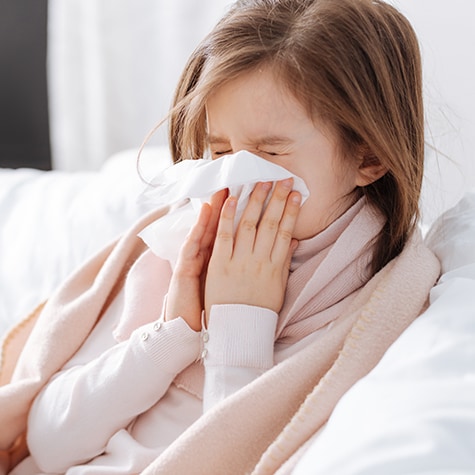
How to spot common illnesses during cold and flu season
Though they have some symptoms in common, here’s how to tell the difference between COVID-19, the flu and the common cold.
learn moreWhat are the different types of COVID-19 testing?
The two most common COVID-19 diagnostic tests from a swab inserted into the nose or throat are:
- Polymerase chain reaction (PCR) test: This is a molecular test that looks for the genetic material of the SARS-CoV-2 virus and is often referred to as the most sensitive test available.
- Antigen tests: Also called a rapid test, this test is less sensitive, but results are available in a few minutes.
Another kind of testing may help determine whether you have had a past infection from SARS-CoV-2:
- Antibody tests: Antibodies are proteins that are made by the body after having an infection or receiving a vaccination. Antibody tests look for proteins in the blood that are made against SARS-CoV-2, after having COVID-19 or after receiving a COVID-19 vaccination. Some antibody tests can tell the difference between protection after infection and protection after COVID-19 vaccination.
What are antibodies?
Antibodies are proteins that help fight off infections and usually provide protection against infection and/or having symptoms from the infection (immunity).
Where can I get my child tested for COVID-19?
At-home tests (antigen tests) are available for purchase in most pharmacies.
At Children’s, we are committed to the health and safety of our patients, families and staff. We encourage you to speak with your child's pediatrician about COVID-19 vaccine recommendations and availability for your child and your family. Visit the CDC website for the most up-to-date vaccine guidance.
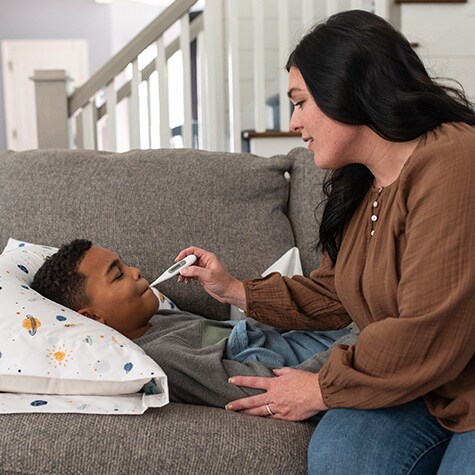
Where to go when your child is sick
If your child is sick or injured, it is important to know where to take them for care. Learn what can be treated at a pediatric urgent care center and a pediatrician's office.
Learn MoreChildren’s Healthcare of Atlanta and its academic partners were selected by the National Institutes of Health (NIH) to help fast-track COVID diagnostic testing at the onset of the pandemic. Today, our researchers continue their work in COVID-19 diagnostic test verification. Additionally, physicians from Children’s and Emory participated in multiple clinical trials evaluating the COVID-19 vaccine in infants, children and adults.
As one of the nation’s leading pediatric research institutions, Children’s is well positioned to lead the way in this vitally important research. Every day, many of our clinicians and researchers are pushing forward with research that will lead to better understanding of and new treatments for this virus.
The CDC offers an interactive COVID Data Tracker to help users follow trends and comparisons of COVID-19 hospitalizations. The dashboard is updated weekly.
Children’s COVID-19 hospitalization data
Contact Us 404-785-KIDS (5437)
